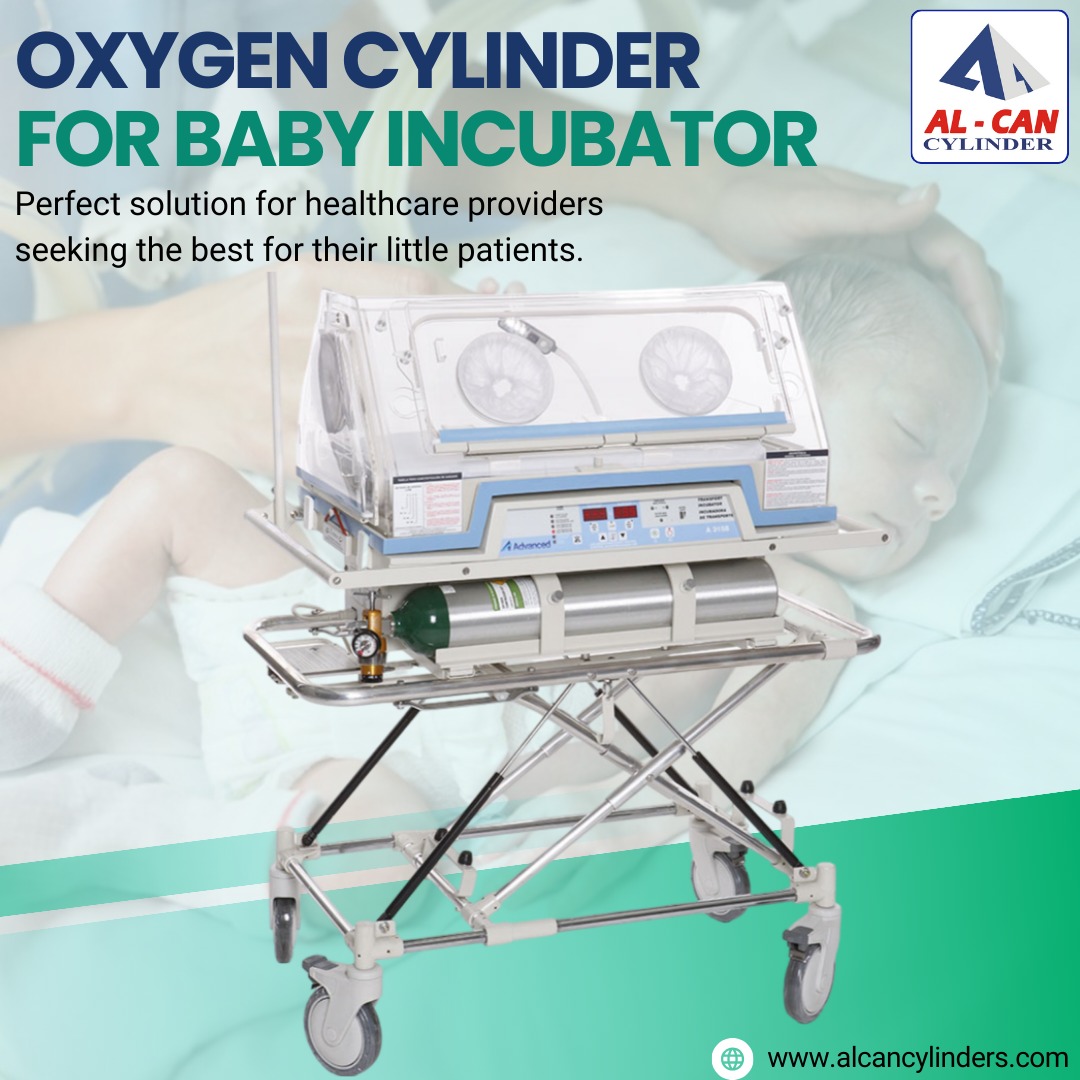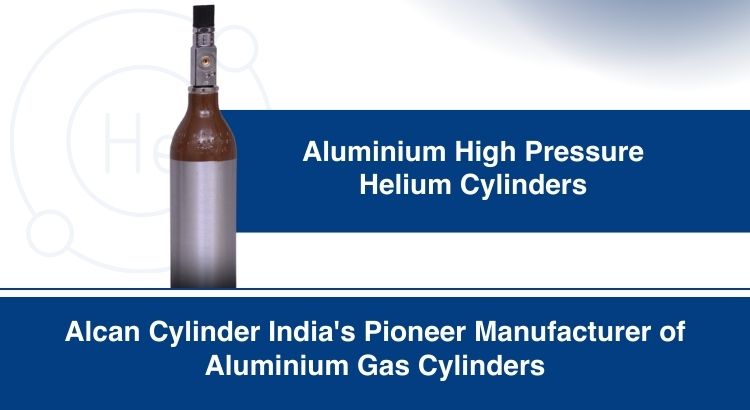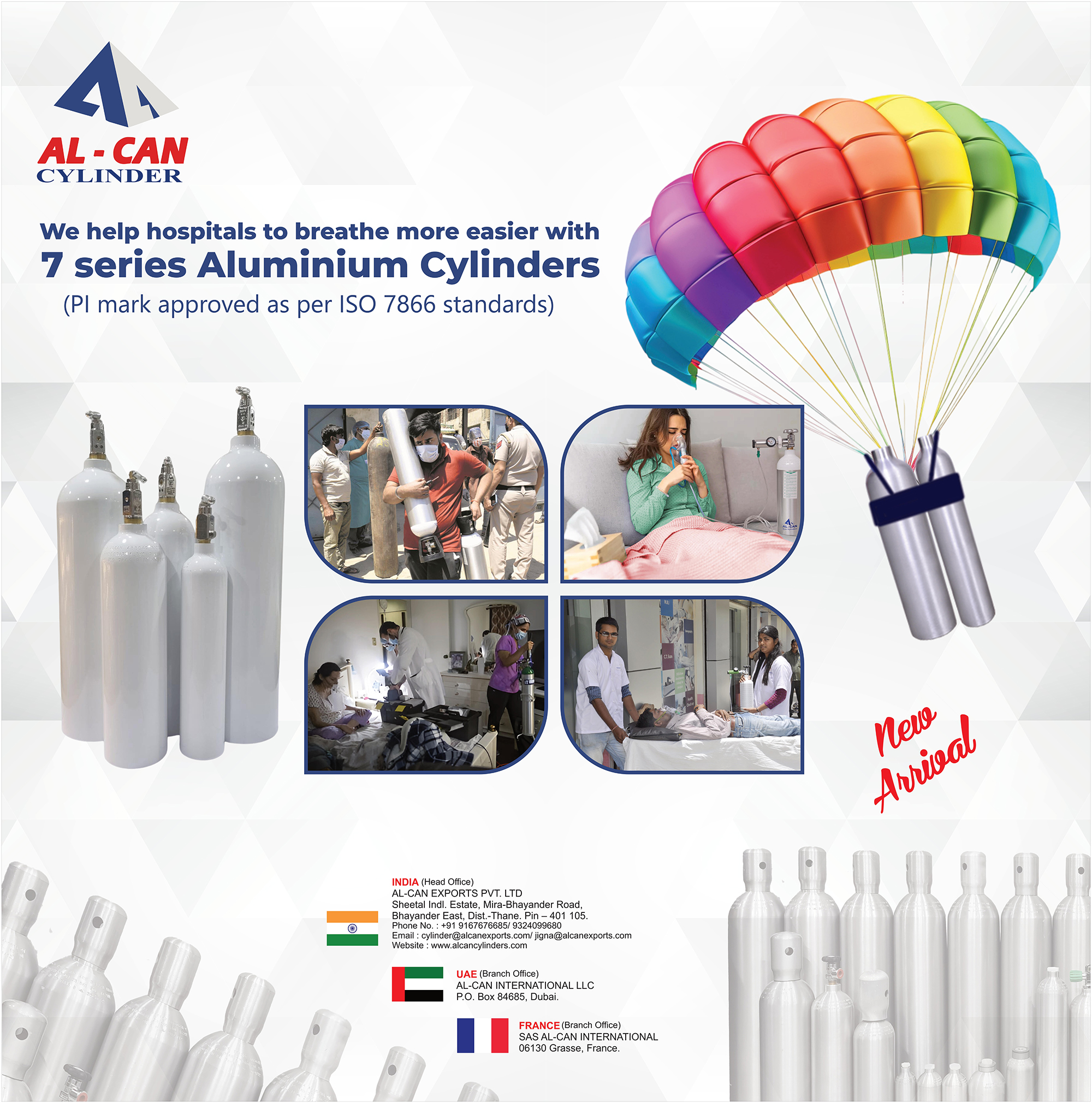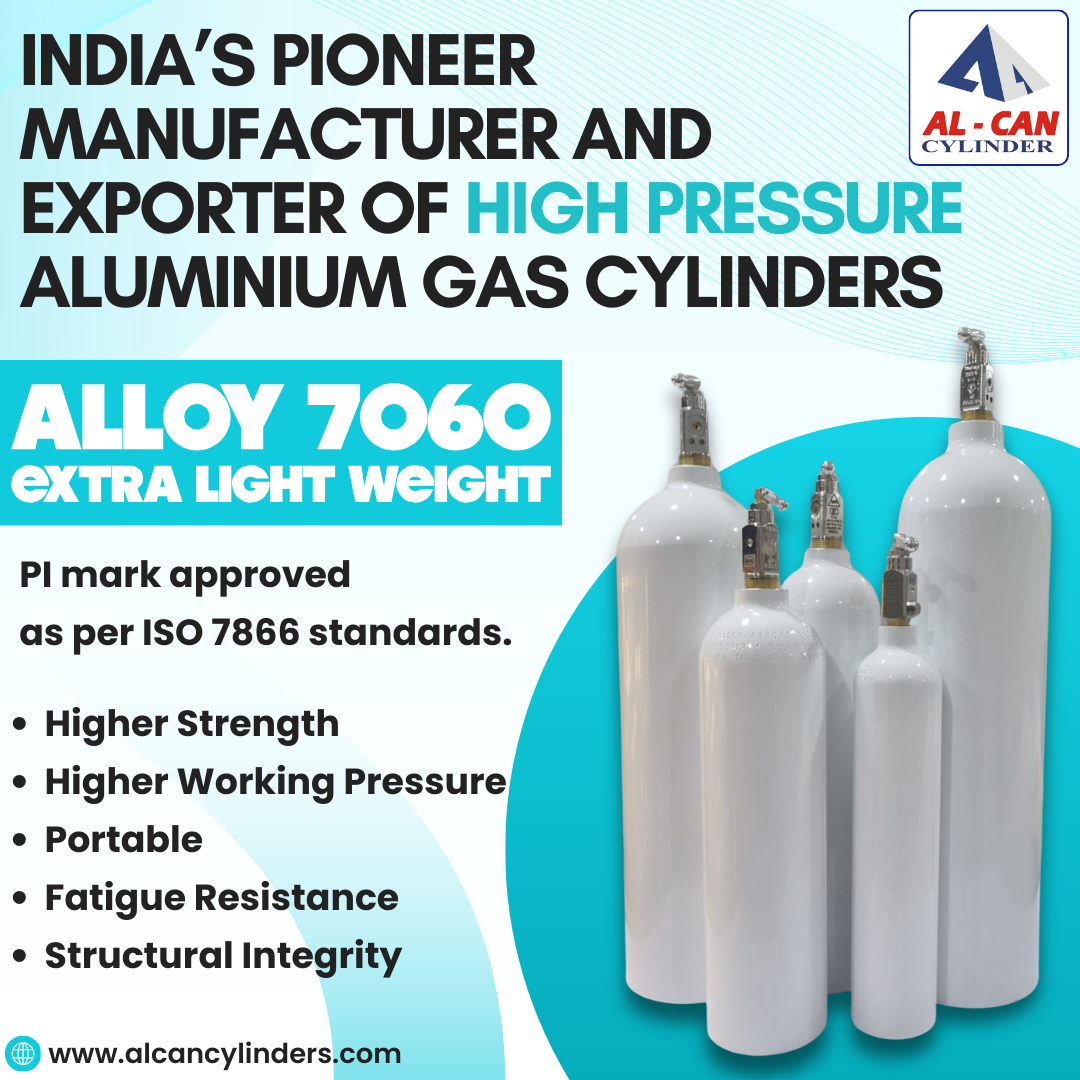Blog
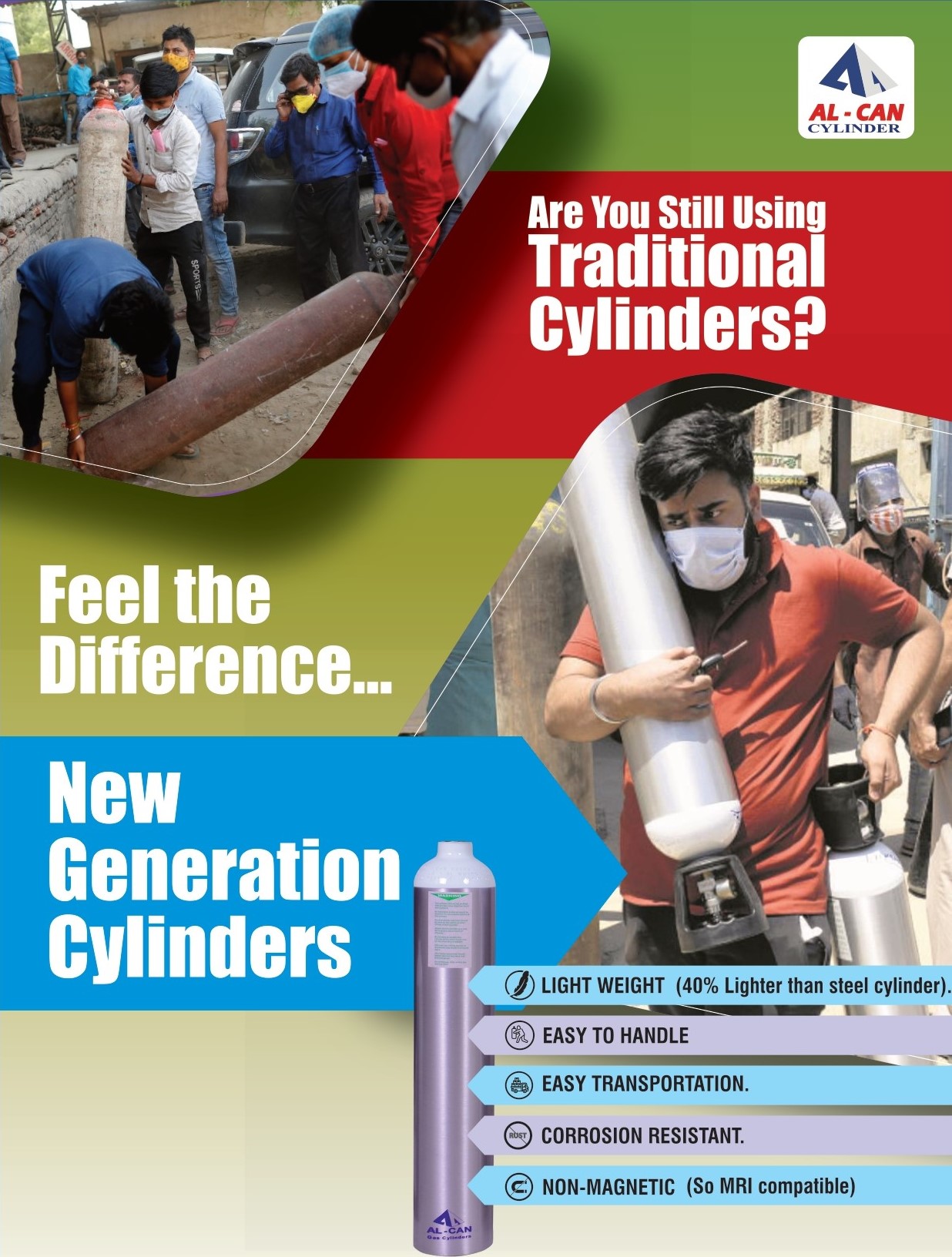
Why Aluminium Cylinder Better Than Steel Cylinder For Medical Gases
Aluminium Cylinders are well known all over the world for their resistance to corrosion in every environment, either in Dry, Humidity or low-humidity conditions. In the Hospital & Medical Industry this feature of Aluminium Cylinders plays a very vital role, because Aluminium Cylinders does not rust like steel does when expose to moisture and Oxygen or other Medical Gases. Aluminium Alloy which used to manufacture Aluminium Cylinders are carefully formulated to enhance Cylinder’s corrosion resistance while maintaining mechanical strength and other desired properties, these alloys are selected based on their ability to withstand all environmental conditions. Aluminum naturally forms a thin oxide layer on its surface when exposed to oxygen in the air which is known as passivation. This oxide layer acts as a protective barrier against further oxidation and corrosion. It significantly prevents deeper penetration of moisture and contaminants that could cause corrosion.
Medical Oxygen (O2): – Medical Oxygen is a very crucial lifesaving gas, so reliable & safe storage of medical oxygen is essential for maintaining patient care and safety in the hospitals and healthcare facilities. The Medical Oxygen can be stored in Aluminium Cylinders for long time with maintaining the integrity and purity of Oxygen Gas, as Aluminium Cylinders are corrosion free so it could not affect the accuracy and performance of stored Oxygen and keep it free from any contamination. On the other hand, steel cylinders are more susceptible to corrosion and rusting, thus oxygen taken from steel cylinders might contain iron particles making them unsuitable for medical use.
- In Western & European countries most of the hospitals and healthcare facilities are using Aluminium Cylinders for storage & supply of Oxygen Gas for the better safety and care of the patients.
- The University of Rhode Island’s study of cylinder internal corrosion reveals that:
Under equal conditions of moisture in cylinders, aluminium cylinders are much better, so oxygen stored in aluminium cylinders may retain its quality longer.
Medical Carbon Dioxide (CO2): – Aluminium Cylinders are ideal to store Medical Carbon Dioxide, because when Carbon Dioxide comes in contact with moisture or water component accidently or while storing, it forms Carbonic acid, this carbonic acid corrode a steel cylinder that contaminate the carbon dioxide gas which used for medical applications. While on the other hand, Aluminium Cylinders are not affected by carbonic acid, and no corrosion will occur in Aluminium Cylinders.
- According to the ASM (American Society for Metals) Metals Handbook (1, 2, 3), aluminium and brass are not attacked by carbonic acid, but steel will corrode.
- The American Compressed Gas Association in, Pamphlets G-6 and G-6.3 (4,5), warns that wet carbon dioxide will cause severe corrosion in steel cylinders.
Medical Nitrous Oxide (N2O): – Medical Nitrous Oxide used widely for Anesthesia during Surgical Procedures, Dental Procedures & for Pain Management. It helps provide sedation, analgesia (pain relief), and relaxation to patients. So, storage of Nitrous Oxide is important as if due to any contamination the primary components of N2O gas are derogated then the gas integrity will loosen, which adversely affects patients. Aluminium Cylinders are the correct storing option for storage of N2O as these Cylinders are free from corrosion and any type of possible contamination. Rather, Steel Cylinders are prone to corrosion which may react with the properties of N2O Gas and can contaminate it while stored for long time.
- The important point is N2O Gas Cylinders are mainly use with the specialized machines and equipments like Anesthesia Machine, if the installed Cylinder is corroded then it also could adversely affect the machine functionality & life span, so nowadays many anesthesiologists prefer Aluminium Cylinders to use with Anesthesia machines.
Likewise, Aluminium Cylinders are an ideal choice for all other medical gases i.e. Nitrogen, Argon, Entonox etc.
